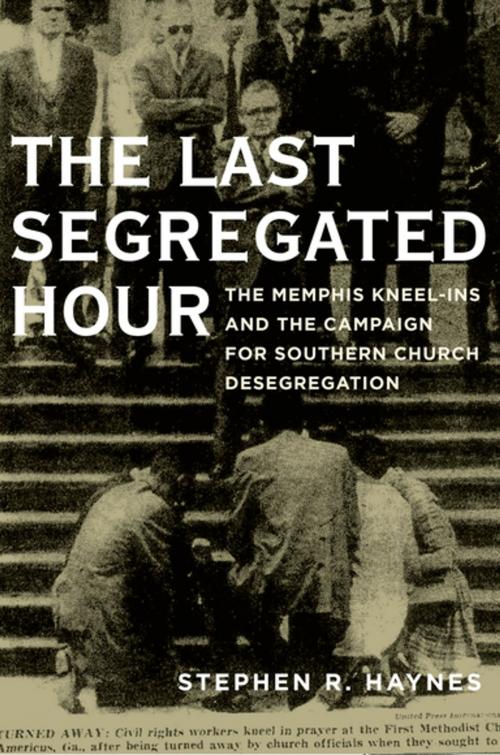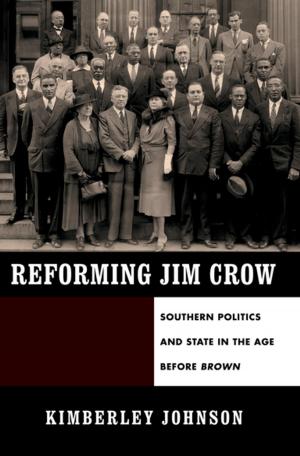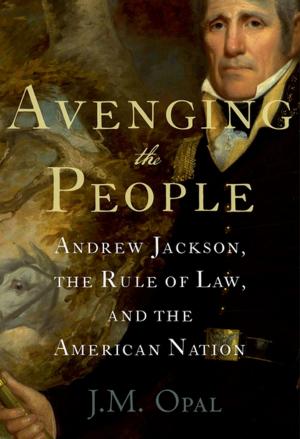The Last Segregated Hour
The Memphis Kneel-Ins and the Campaign for Southern Church Desegregation
Nonfiction, Religion & Spirituality, Christianity, Church, Church History, History, Americas, United States| Author: | Stephen R. Haynes | ISBN: | 9780199911011 |
| Publisher: | Oxford University Press | Publication: | September 24, 2012 |
| Imprint: | Oxford University Press | Language: | English |
| Author: | Stephen R. Haynes |
| ISBN: | 9780199911011 |
| Publisher: | Oxford University Press |
| Publication: | September 24, 2012 |
| Imprint: | Oxford University Press |
| Language: | English |
On Palm Sunday 1964, at the Second Presbyterian Church in Memphis, a group of black and white students began a "kneel-in" to protest the church's policy of segregation, a protest that would continue in one form or another for more than a year and eventually force the church to open its doors to black worshippers. In The Last Segregated Hour, Stephen Haynes tells the story of this dramatic yet little studied tactic which was the strategy of choice for bringing attention to segregationist policies in Southern churches. "Kneel-ins" involved surprise visits to targeted churches, usually during Easter season, and often resulted in physical standoffs with resistant church people. The spectacle of kneeling worshippers barred from entering churches made for a powerful image that invited both local and national media attention. The Memphis kneel-ins of 1964-65 were unique in that the protesters included white students from the local Presbyterian college (Southwestern, now Rhodes). And because the protesting students presented themselves in groups that were "mixed" by race and gender, white church members saw the visitations as a hostile provocation and responded with unprecedented efforts to end them. But when Church officials pressured Southwestern president Peyton Rhodes to "call off" his students or risk financial reprisals, he responded that "Southwestern is not for sale." Drawing on a wide range of sources, including extensive interviews with the students who led the kneel-ins, Haynes tells an inspiring story that will appeal not only to scholars of religion and history, but also to pastors and church people concerned about fostering racially diverse congregations.
On Palm Sunday 1964, at the Second Presbyterian Church in Memphis, a group of black and white students began a "kneel-in" to protest the church's policy of segregation, a protest that would continue in one form or another for more than a year and eventually force the church to open its doors to black worshippers. In The Last Segregated Hour, Stephen Haynes tells the story of this dramatic yet little studied tactic which was the strategy of choice for bringing attention to segregationist policies in Southern churches. "Kneel-ins" involved surprise visits to targeted churches, usually during Easter season, and often resulted in physical standoffs with resistant church people. The spectacle of kneeling worshippers barred from entering churches made for a powerful image that invited both local and national media attention. The Memphis kneel-ins of 1964-65 were unique in that the protesters included white students from the local Presbyterian college (Southwestern, now Rhodes). And because the protesting students presented themselves in groups that were "mixed" by race and gender, white church members saw the visitations as a hostile provocation and responded with unprecedented efforts to end them. But when Church officials pressured Southwestern president Peyton Rhodes to "call off" his students or risk financial reprisals, he responded that "Southwestern is not for sale." Drawing on a wide range of sources, including extensive interviews with the students who led the kneel-ins, Haynes tells an inspiring story that will appeal not only to scholars of religion and history, but also to pastors and church people concerned about fostering racially diverse congregations.















